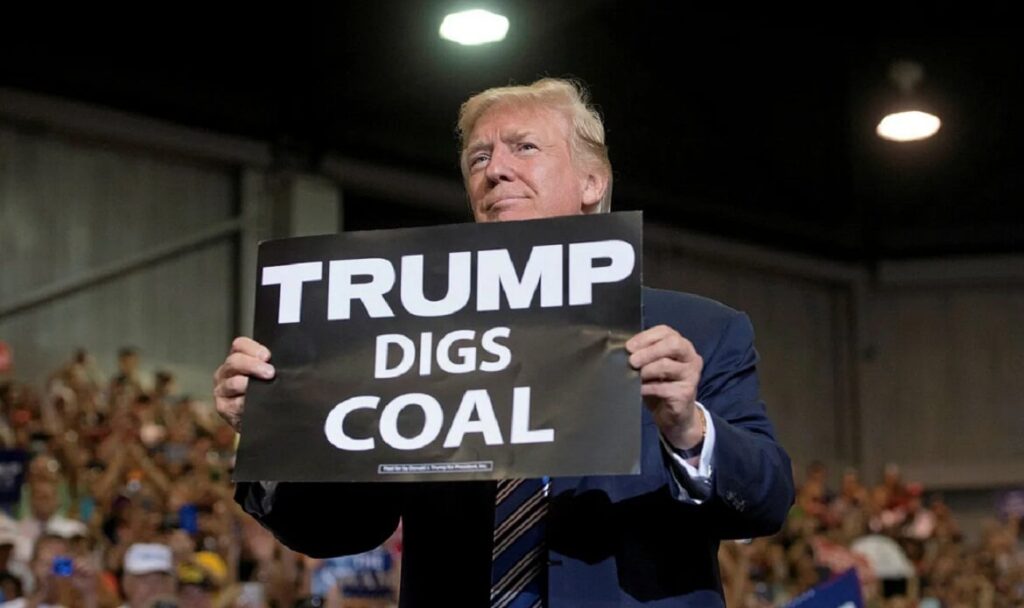World Geostrategic Insights interview with Mamdouh G Salameh on the changes the Trump administration intends to make in U.S. energy and climate policy and its implications, both domestically and internationally.

Dr. Mamdouh G Salameh is an International Oil Economist and a Global Energy Expert. He was a Visiting Professor of Energy Economics at the ESCP Europe Business School in London.
Q1 – How would you assess the energy policy and climate regulations of the Biden era? What impact has it had domestically and internationally?
A1 – I would assess them as haphazard and contradictory. On the one hand, the Biden administration was declaring to the world its adherence to the Paris Climate Change Treaty and its climate change goals and on the other, it was encouraging oil and gas production both for exports and also in order to play a bigger role in the global oil and LNG market.
In so doing it neither gained the support of the US oil and gas industry since it forbade any exploration in Federal lands nor did it convince the environmental lobby of its sincerity about climate change.
Domestically its impact was hardly noticeable. Internationally it had some impact on keeping oil prices relatively low by pumping into the global oil market 288 million barrels (mb) of oil it withdrew over four years from the US Strategic Petroleum Reserve (SPR) in order to depress oil prices for the benefit of its economy.
It is now finding it difficult to refill its SPR with only 25 mb or 8.7% of the 288 mb returned to the SPR.
Q2 – President-elect Donald Trump wants to make the United States not only “energy independent,” but also “energy dominant.” He has said he wants to roll back nearly all of the Biden administration’s regulations aimed at reducing carbon emissions and moving away from fossil fuels, and has promised to cut natural gas and electricity prices in half within a year, largely through increased natural gas production. What changes do you think the Trump administration might actually bring to U.S. energy and climate policy?
A2 – President-elect Trump tends to talk big but whether he can achieve what he promises remains to be seen.
For instance, he wants to make America not only “energy independent” but also “energy dominant”.
He can’t make America self-sufficient in energy because it has to continue importing an estimated 8.0 million barrels a day (mbd) to satisfy domestic demand. Moreover, US oil production has already peaked.
As to making America energy dominant, he can’t either but he will have some influence on the global oil market by virtue of importing 8.0 mbd. This makes America the world’s second- largest importer of crude oil after China. The dominant powers in the global oil market are OPEC+, China and Russia.
Of course he can roll back nearly all of the Biden administration’s regulations aimed at reducing carbon emissions and moving away from fossil fuels. As to his promise to cut natural gas and electricity prices in half within a year, that is doubtful because it may not be compatible with increasing exports. Lower gas and electricity prices will enhance domestic consumption and this will force a cut in exports.
Trump has made it clear that he isn’t a fan of climate change policies. After all, he withdrew the United States from the Paris Climate Change Treaty. He may repeal any laws or regulations that may affect increasing US oil and gas production. But I doubt he will withdraw the US again from the Paris Treaty because he doesn’t want to gain a reputation of reneging on international treaties as he did with the Iran nuclear treaty.
He will certainly ensure that the orientation of the US energy policy points very clearly towards fossil fuels and not climate change policies.
Q3 – Trump intends to create a National Energy Council to coordinate policies to increase U.S. energy production, which will be led by North Dakota Governor Doug Burgum’s choice for Secretary of the Interior. In addition, Chris Wright, Donald Trump’s choice for Secretary of Energy, is a strong supporter of oil and gas development. CEO of Denver-based Liberty Energy, Wright has been one of the industry’s strongest voices against efforts to combat climate change. What are your thoughts on these designations?
A3 – Trump may create a National Energy Council or whatever additional outfits to coordinate policies to increase U.S. energy production but his efforts could be undermined by two factors: Geology and US investors.
US gas production is at maximum while crude oil production has peaked. So he can’t add more to production either.
US investors want a good return on their oil investments rather than grand slogans. They don’t care about increasing crude oil production at any cost or even at loss or unachievable slogans. They only care about the profitability of their investments.
Chris Wright, Donald Trump’s choice for Secretary of Energy will help Trump reorient US energy security towards fossil fuels and away from climate change goals.
Q4 – A profound change in U.S. climate and energy policy is likely to have far-reaching international repercussions. What might be its implications for EU climate and energy policy? And for other areas of the world, such as the so-called Global South?
A4 – A movement away from climate change goals by the Trump administration will retard the EU climate and energy policy but will have no impact on the China-led Global South since it is the world’s largest market for fossil fuels.
EU climate change goals are unachievable , unbelievably expensive costing an estimated $75 trillion between now and 2050 wrecking the EU economy and can replace fossil fuels.
The notions of global energy transition and net-zero emissions are myths. They can never be achieved in 2050 or 2100 or ever.
Renewables are incapable on their own of satisfying global demand for electricity without considerable contributions from gas, coal and nuclear energy. The reason is their intermittent nature.
The Global South is the largest market for fossil fuels and this situation isn’t going to change well into the future.
China on the other hand is breaking records by generating 50% of its electricity from renewables while simultaneously continuing to build new coal-powered electricity generation plants. China will continue to lead the global energy markets well into the future.
Dr. Mamdouh G Salameh – International Oil Economist and Global Energy Expert.
Image Credit: AFP







